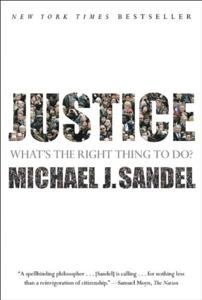
Want to learn the ideas in Justice better than ever? Read the world’s #1 book summary of Justice by Michael J. Sandel here.
Read a brief 1-Page Summary or watch video summaries curated by our expert team. Note: this book guide is not affiliated with or endorsed by the publisher or author, and we always encourage you to purchase and read the full book.
Video Summaries of Justice
We’ve scoured the Internet for the very best videos on Justice, from high-quality videos summaries to interviews or commentary by Michael J. Sandel.
1-Page Summary of Justice
Overview
Justice is a topic that has been debated for many years. It’s difficult to understand because it changes with time and culture. For example, is it right to sacrifice one person’s life in order to save many others? Is it fair for the rich to pay taxes so the poor can have more money? Is abortion murder or a human right?
The answer to this question depends on the person. Everyone has different norms, values and experiences that influence their judgment.
Moreover, in the history of philosophy, we can see that different philosophers had different definitions of justice. For example, Aristotle’s definition was based on virtue and living a good life; therefore, it would be difficult to define what is just without first defining what constitutes a good life.
Utilitarianism is a modern philosophy that says justice should be about the general good.
Other modern theories like the Libertarian philosophy believe that the most important part of a just society is to guarantee freedom for every individual.
Big Idea #1: We sharpen our sense of justice by exploring different philosophical perspectives.
Although it is impossible to define justice, we can look at different theories of justice and compare them.
Therefore, we shouldn’t think of philosophers as people who are outdated and irrelevant to our modern times. Instead, they’re great thinkers that can help us find answers to many of the questions we have in today’s society. For example: How should progressive taxes be viewed? What does it mean when you make a promise that you can’t keep? Can same sex marriage be argued for effectively? And philosophers like Kant, Aristotle and John Rawls give us the answers to these questions so that we can use them to come up with our own solutions.






